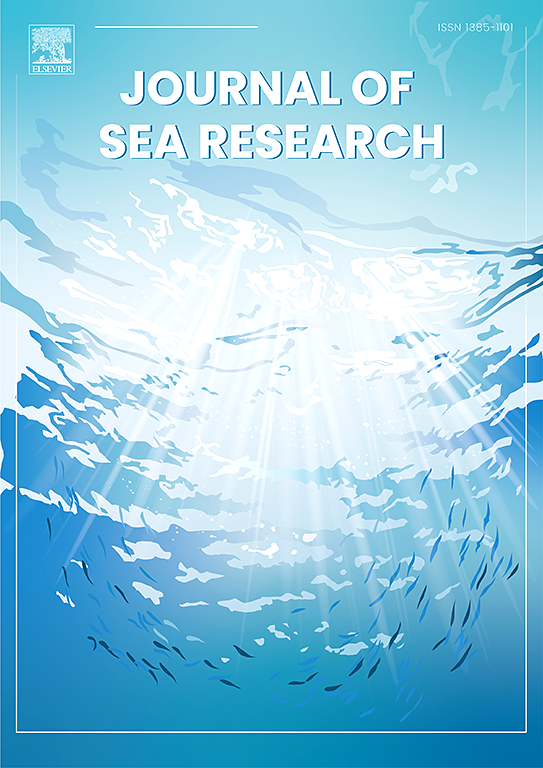Short- and long-term tidal level forecasting: A novel hybrid TCN + LSTM framework
IF 2.9
4区 地球科学
Q2 MARINE & FRESHWATER BIOLOGY
引用次数: 0
Abstract
Tidal level forecasting is essential for maritime safety, coastal management, and infrastructure planning. This study proposes a hybrid framework combining Temporal Convolutional Network (TCN) and Long Short-Term Memory (LSTM) model to predict tidal levels across short- and long-term horizons. The TCN excels at capturing temporal patterns, while the LSTM effectively models sequential dependencies, facilitating accurate forecasting of tidal fluctuations. Covariance Matrix Adaptation Evolution Strategy (CMA-ES) was used for hyperparameter tuning of both TCN and LSTM component of hybrid framework. Historical tidal data from Ras Tanura (2012−2021) was utilized for training and evaluation. The analysis revealed that the hybrid TCN + LSTM framework optimized via CMA-ES outperformed other deep learning models, including standalone LSTM, GRU, and CNN, demonstrating enhanced accuracy and reliability across various forecasting horizons. For short-term predictions (T + 5 and T + 10 days), it achieved MAE values of 0.073 and 0.081, with MAPE values of 7.43 % and 9.15 %, respectively. For longer-term horizons (T + 30 and T + 60 days), it maintained accuracy with MAE values of 0.050 and 0.054 and corresponding MAPE values of 5.39 % and 4.93 %. The study demonstrates the potential of the hybrid TCN + LSTM framework for reliable tidal level forecasting, supporting better planning and decision-making in coastal and maritime applications.
短期和长期潮位预报:一种新的TCN + LSTM混合框架
潮位预报对海上安全、海岸管理和基础设施规划至关重要。本研究提出了一种结合时间卷积网络(TCN)和长短期记忆(LSTM)模型的混合框架来预测短期和长期的潮位。TCN擅长捕捉时间模式,而LSTM则有效地模拟了顺序依赖关系,有助于准确预测潮汐波动。采用协方差矩阵自适应进化策略(CMA-ES)对混合框架的TCN和LSTM组件进行超参数整定。利用Ras Tanura(2012 - 2021)的历史潮汐数据进行培训和评估。分析显示,通过CMA-ES优化的混合TCN + LSTM框架优于其他深度学习模型,包括独立的LSTM、GRU和CNN,在各种预测范围内显示出更高的准确性和可靠性。对于短期预测(T + 5天和T + 10天),MAE值分别为0.073和0.081,MAPE值分别为7.43%和9.15%。对于较长期(T + 30天和T + 60天),MAE值分别为0.050和0.054,对应的MAPE值分别为5.39%和4.93%。该研究证明了TCN + LSTM混合框架在可靠的潮位预报方面的潜力,支持在沿海和海上应用中更好的规划和决策。
本文章由计算机程序翻译,如有差异,请以英文原文为准。
求助全文
约1分钟内获得全文
求助全文
来源期刊

Journal of Sea Research
地学-海洋学
CiteScore
3.20
自引率
5.00%
发文量
86
审稿时长
6-12 weeks
期刊介绍:
The Journal of Sea Research is an international and multidisciplinary periodical on marine research, with an emphasis on the functioning of marine ecosystems in coastal and shelf seas, including intertidal, estuarine and brackish environments. As several subdisciplines add to this aim, manuscripts are welcome from the fields of marine biology, marine chemistry, marine sedimentology and physical oceanography, provided they add to the understanding of ecosystem processes.
 求助内容:
求助内容: 应助结果提醒方式:
应助结果提醒方式:


